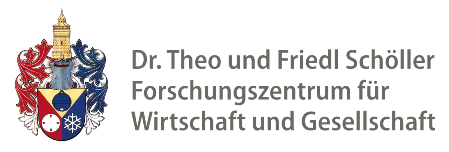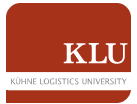Over the last three decades, IHRM Conferences were held every two years at different locations all around the world such as Singapore, Hong Kong, Ashridge House (United Kingdom), Gold Coast (Australia), San Diego (United States of America), Paderborn (Germany), Limerick (Ireland), Cairns (Australia), Tallinn (Estonia), Santa Fe-New Mexico (United States of America), Birmingham (United Kingdom), Gurgaon (India), Krakow (Poland); Victoria-British Columbia (Canada), and Madrid (Spain). Due to the COVID-19 pandemic the conference in Paris in 2020 had to be canceled. We are pleased to be able to continue the series again now. Theme:
IHRM in Action:
In Search of Organizational Resilience in Multinational Enterprises
The COVID-19 crisis adds to the long list of shock events in the 21st century that have included terrorism, corporate scandals, the global financial crisis, natural (e.g., the Indian Ocean tsunami in 2004; the Icelandic volcano eruption in 2010), and environmental disasters (e.g., the BP/Deepwater Horizon oil rig explosion off the US’s Gulf Coast) (Minbaeva & De Cieri, 2015). The global pandemic has highlighted some gaps in IHRM research regarding how HRM theory and practices could assist multinationals in handling environmental disasters: “answers to questions we wish we had in the academic literature but, to date, do not” (Caligiuri et al., 2020, p. 705). But most of all, the experience from the pandemic once again stressed the importance of understanding the role of IHRM in building organizational resilience.
Understanding the nature of organizational resilience and identifying its sources are challenging. The difficulty comes from the multifaceted and multilevel nature of resilience. It has been studied in various disciplines including psychology, war studies, team level research, strategic management, but there have not been enough conceptual attempts to integrate the insights generated in those various fields. For multinational enterprises and international organizations, the challenge is amplified by the variety of contexts MNEs are operating across (linguistic, cultural, institutional, etc.)
- How can MNEs create and strengthen organizational capabilities to “bounce back” from shock events brought by environmental disasters?
- What competencies should MNEs prioritise in their recruitment and selection practices?
- Are there different configurations of the talent portfolio that should be emphasized in the context of global uncertainty?
- Are there different types of human capital that could contribute differently to organizational resilience?
- In crisis, how can MNEs support their employees and help them to cope with and bounce back from stress and adversity, and hopefully even grow through the experience?
- How does the context in which a MNE operate shapes its ability to respond to and deal with environmental disasters?
- Are there any MNE crisis-handling practices that can be transferred to the local context for the betterment of society?
- Are there, and should there be, changes in the strategic reasons for expatriation and other forms of international work?
- What are the implications and impact of digitization of work for MNEs? How does technology (including AI and ML) contribute to the building of organizational resilience?
- Which MNE initiatives are more effective for supporting equality, diversity and inclusion in the context of global uncertainty?
- Which IHRM practices or interventions will be most effective in creating mentally resilient workplaces?
These and many more questions will need to be examined during the conference’s panels;
roundtables with practitioners; competitive and interactive sessions.
The conference will have a dedicated teaching track showcasing excellence in IHRM teaching practice. The teaching track is designed to help participants who have a passion for teaching improve their teaching practices in an open forum of shared experience. We welcome both papers engaged with teaching research, from IHRM scholars and beyond, as well as practical sessions on teaching practice and innovation. The teaching track is organised to support and meet the teaching-related needs of IHRM members and seeks to benefit from interdisciplinary knowledge sharing and debate. In conjunction with the conference, there will be a PhD consortium as well as Publishing Workshop for junior scholars.
Conference committee:
- Dana Minbaeva, King’s College London, dana.minbaeva@kcl.ac.uk
- Ian Hill, King’s College London, ian.j.hill@kcl.ac.uk
- Hyun-Jung Lee, LSE, h.lee@lse.ac.uk
Timeline
Extended abstract (max 2,000 words) submission deadline: 20 February 2023.
Decisions of acceptance: 3 April 2023.
Application for the PhD consortium: 10 April 2023.
Application for the Publishing Workshop: 8 May 2023.
Venue: King’s College London.







